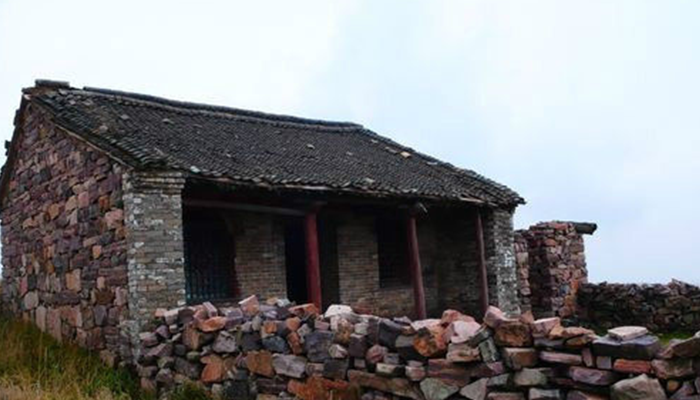The Legend of Shun
Shun's legend is a folk tale of Yuncheng in Shanxi Province.
On May 23, 2011, Shun's legend was approved by the State Council to be included in the third batch of national intangible cultural heritage list.
Historical Origin
Shun was born in Zhufeng Village, Yongji County. His surname is Yao and his name is Chonghua because of his double pupils. Soon after his mother gave birth, he died. His father married a stepmother and gave birth to a man and a woman. The man's name was elephant, and the woman's name was broad head. She was Shun's half-brother and sister.
It is said that when Shun was 20 years old, he became famous for his filial piety. Because he can persevere in filial piety to his parents who abuse and persecute him, he was praised in his youth. Ten years later, Yao chose Shun as his successor, and married his two daughters to Shun to examine his character and ability. Shun not only made the two women live in harmony with the whole family, but also showed outstanding talent and noble personality strength in all aspects. Yao was very happy to learn about this. He gave Shun Haoyi (Xige cloth) and Qin, cattle and sheep, and built warehouses for him. Shun was rewarded with these rewards. The old man and the elephant were very hot-eyed. They wanted to kill Shun and seize the property. He asked Shun to repair the roof of the warehouse, but set it on fire below. Shun relied on two hats as wings and jumped from the house, surviving. Later, he asked Shun to dig a well. The well was very deep. However, he and the elephant filled it with earth. They wanted to plug the well and bury Shun alive in it. Fortunately, Shun was alert in advance and dug a passage beside the wellbore. He went through the passage and hid for some time. The old man and the elephant thought the conspiracy had succeeded. He thought that this idea was his idea. He wanted to play the piano when he shared the things. He also wanted Yao's two daughters to be his wives and to share the cattle, sheep and barn with his parents. The elephant lived in Shun's house and played Shun's piano. Shun went to see him. The elephant was shocked and the elder was unhappy, but he said in his mouth, "I think Shun is just Yu Tao!" Shun also did not take it seriously. As always, he was filial to his parents and friendly to his brothers. He was more sincere and cautious than ever.
Shun left home to cultivate in Lishan because his parents abused him. Nevertheless, he never forgot the kindness of his parents'upbringing, regardless of past suspicions. One day, he saw a female turtle dove flying with a small turtle dove. The female turtle dove caught flying insects from time to time to feed the little turtle. She was very honored. Shun was moved. He missed his parents who were nurturing him, so he could not help singing the song "Sighting for His Family" to say, "You Pi, Shun Shan, Cui Wei, there are birds flying high. Looking at Piquitoes hovering - --- No Zhang Rui thinks about my parents. Living on hard farming days and on moons is like a gallop, and my parents will return home safely. "It means:
Boarding the calendar of Cuiwei,
See two turtledoves flying in the air.
The sun and the moon shuttle like arrows.
I miss my parents, but it's hard to return home!
Shun is indeed a great filial son. He was known for filial piety at the age of 20.
Thirty miles from the north gate of the transportation city, there is Mingtaogang, on which there is a Shun Emperor's Mausoleum Temple. The people of Hedong call it the Shun Emperor Temple. According to the records of Puzhou Prefecture and Jiezhou prefecture, the temple was built in the 26th year of Kaiyuan in Tang Dynasty (738 AD). It was destroyed by earthquake in Ming and Jiajing years, and was rebuilt on a large scale during Wanli years. It has been repaired many times in Qing Dynasty and is still well preserved. The Temple of Emperor Shun is divided into three parts: the outer city, the mausoleum and the imperial city.
Inheritance Significance
Through the cultural bond of Yao and Shun legends and the custom of visiting relatives, the people of the two places have established a close blood relationship. This kinship is a derivative of local beliefs. This faith-based blood relationship is super-historical. There is a local saying that there is no intermarriage between Otter and Lishan because they are already relatives. In fact, even if this blood relationship is true, according to Chinese tradition, "five clothes" are regarded as blood interruption, can be intermarried with each other. This view of non-intermarriage seems to span a long history, directly linking real life with the ancient Yao and Shun times.
This kind of consanguineous geographic relationship, with the help of the media of belief, shows a strong cultural radiation. Family visits are not only related to orangutans and Lishan, but also to all villages along the route of family visits.

0 Questions
Ask a Question
Your email address will not be published.